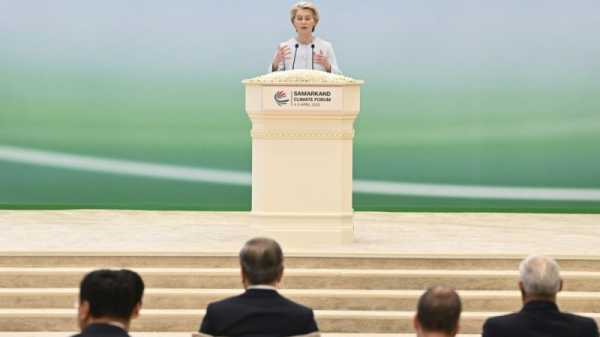
Farmers, foresters, and several politicians are calling for regulation on brown bears as their attacks on farms and humans have reportedly increased.
For the second year in a row, brown bears have become one of Slovakia’s hottest topics for debate. This is in response to the alleged increasing number of confrontations between bears and humans.
“Bears in Slovakia are overpopulated. Farmers are currently in full season, and they get up early in the morning when the animals are in their active phase,” said Emil Macho, the chairman of the largest agricultural association SPPK, in response to two bear attacks on sheep farms.
The topic of bear regulation became a major theme last year after a bear had killed a man, what the state authorities said could be the first confirmed deadly attack by a wild bear in the country’s modern history.
However, statistics do not confirm a growing trend of bear attacks on humans. According to data from the Environment Ministry, such a situation occurred only nine times last year.
But this does not stop some political parties from trying to call an extraordinary parliamentary session to oblige the government to prepare a law to regulate the population of brown bears. The Environment Ministry wants to focus instead on preventive measures that minimise bear-human encounters.
The problem is a lack of accurate data on the number of bears in Slovakia. In 2022, The State Nature Conservancy monitored their numbers by analysing DNA samples of bear scat and hair. Based on these, the number of bears was estimated at 1,056 individuals.
On the other hand, hunters say their estimates were lower than were previously underestimated.
According to the National Forestry Center, brown bear numbers have risen from 1,467 individuals in 2000 to 2,997 reported individuals in 2021.
According to the Environment Ministry, the problem is a gradual change in the bear’s behaviour rather than their overpopulation.
He added that unsecured containers, baiting, corn farming in the foothills, and the urbanisation of the natural environment bring them closer to human dwellings.
(Marián Koreň | EURACTIV.sk)
Read more with EURACTIV

Spanish youth not represented by politicians: study
Source: euractiv.com



